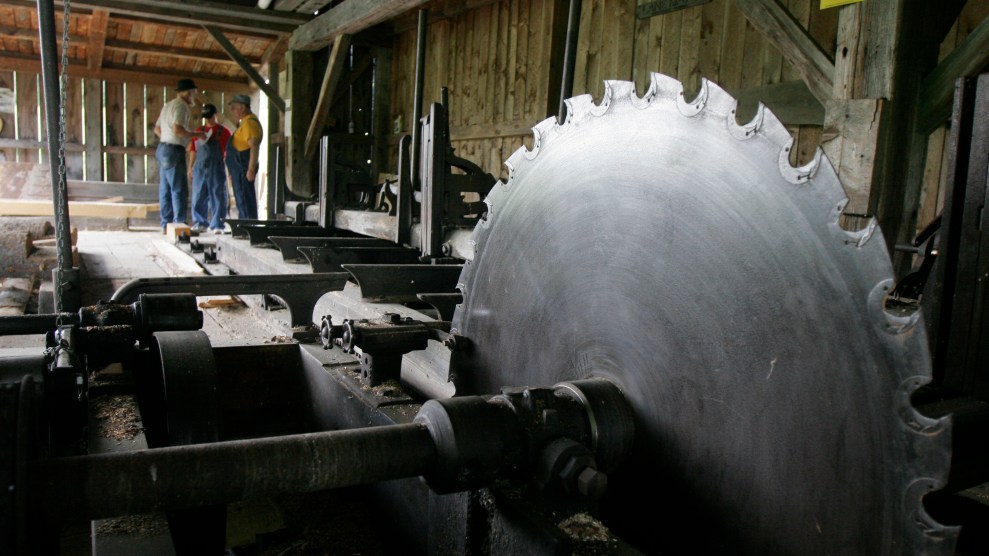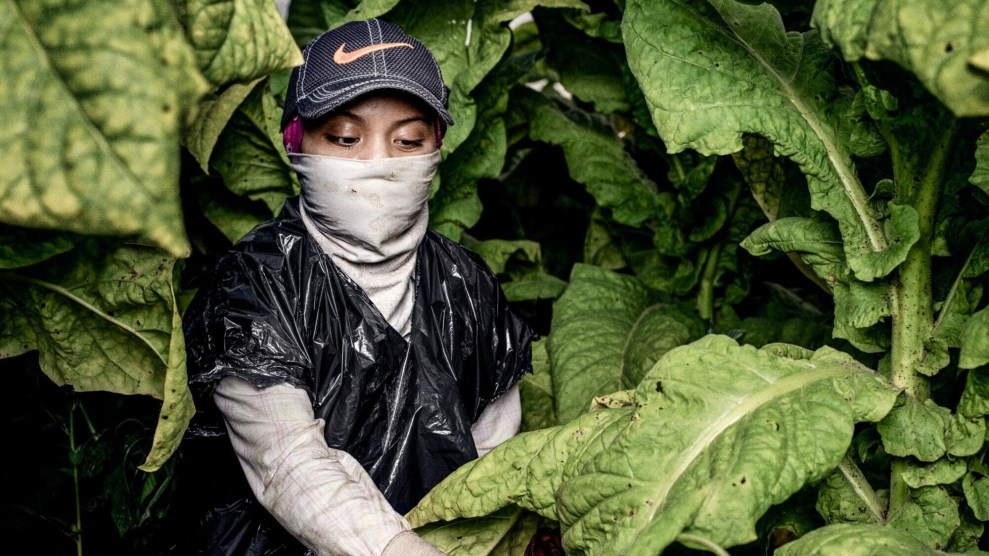
Toby Talbot/AP
A Wisconsin 16-year-old died this month from injuries sustained from an “industrial accident” while working on a sawmill, in a startling reminder of the rise of child labor in dangerous occupations throughout the country. Officials announced today they are investigating. A cause of death has not been released.
Department of Labor statistics show a steady uptick in child labor violations in recent years, with the number of minors employed in violation of child labor laws up 37 percent in 2022 from the year prior. Many of the children who are working in the most dangerous jobs, like construction, are unaccompanied migrant children who are often in debt to the people who smuggled them into the country.
When child labor abuse makes headlines, the companies responsible receive the financial equivalent of a slap on the wrist. One of the largest food sanitation companies in the US was fined $1.5 million earlier this year for employing more than 100 children to clean meat-cutting equipment with caustic chemicals. The fine, which amounted to $15,138 per illegally employed child, was the maximum allowed under the Fair Labor Standards Act. Critics called it “woefully insufficient.”
But instead of suggesting solutions like raising fines for companies that illegally employ children, Republicans in various state legislatures have recently proposed laws to loosen child labor restrictions. The bills range from seemingly innocuous (like allowing teens as young as 14 to serve alcohol in restaurants) to downright alarming (like letting kids of that age work in industrial laundries and meat coolers).
Proponents of these bills tout the merits of hard work, but child labor restrictions aren’t about taking away kids’ summer jobs at the car wash and the ice cream parlor; they’re about preventing children from doing dangerous work that will lead them to the morgue instead of the mall.















